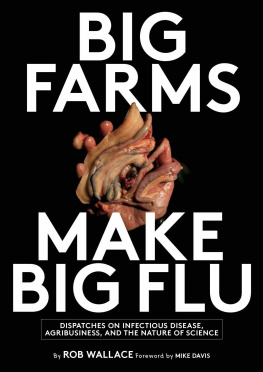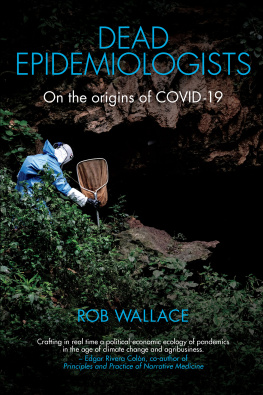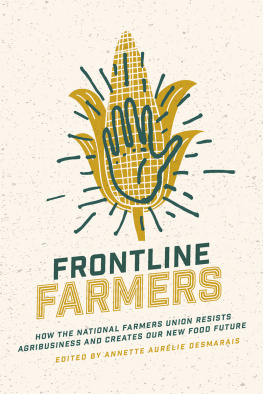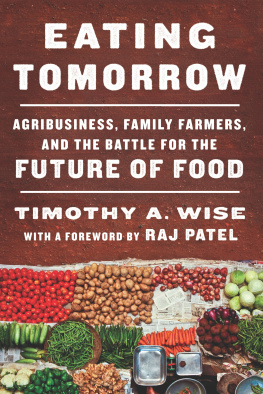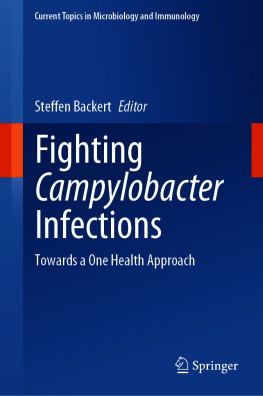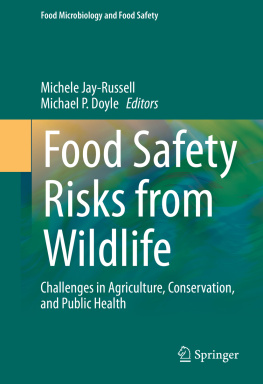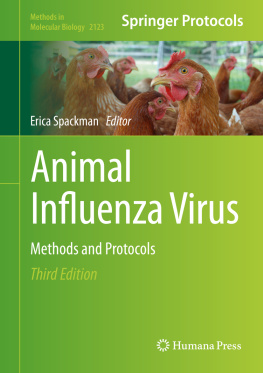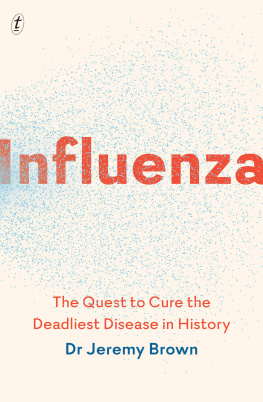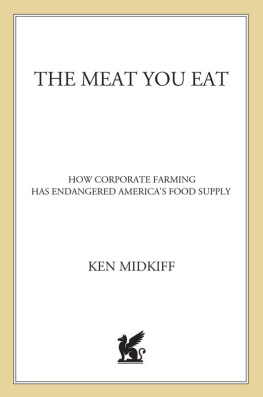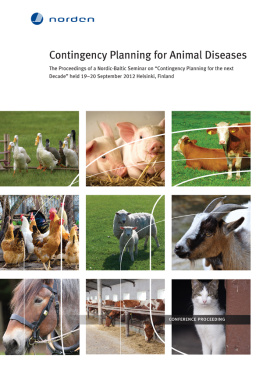BIG FARMS MAKE BIG FLU
BIG FARMS
MAKE BIG FLU
Dispatches on Infectious Disease, Agribusiness,
and the Nature of Science
by ROB WALLACE

Copyright 2016 by Rob Wallace
All Rights Reserved
Library of Congress Cataloging-in-Publication Data:
Names: Wallace, Robert G., author.
Title: Big farms make big flu : dispatches on infectious disease, agribusiness, and the nature of science / by Rob Wallace.
Description: New York : Monthly Review Press, [2016] | Includes bibliographical references and index.
Identifiers: LCCN 2016022329| ISBN 9781583675892 (pbk.) | ISBN 9781583675908 (hardcover)
Subjects: LCSH: InfluenzaEpidemiology. | Epidemics. | Agricultural industriesHealth aspects.
Classification: LCC RA644.I6 W35 2016 | DDC 614.5/18dc23 LC record available at https://lccn.loc.gov/2016022329
Typeset in Minion Pro
MONTHLY REVIEW PRESS, NEW YORK
monthlyreview.org
5 4 3 2 1
Contents
Did Neoliberalizing West African Forests
Produce a New Niche for Ebola?
TO VIOLET
When we had no means, we said the end justifies the means. Now that we have no ends, we say the means justify the end.
Neither is immoral.
What is entirely immoral is that there is no longer any contradiction between the two: ends and means have become indifferent to one another. They are quite simply no longer of the same order.
Everything works wonderfully, expanded like polystyrene, driven by the generic flows of the generators: the metastatics of Good.
Everything goes badly, all the circuits diverge, driven by anxiety and driven to anxiety: the erratics of Evil.
JEAN BAUDRILLARD (1995)
Eventually? Is that all? Eventually? Hoock Seng scowls at him. I dont care about eventually. I care about this month. If this factory fails to produce, we wont have a chance to worry about this eventually you speak of. Youll be back in Thonburi, picking through chicken guts and hoping you arent hit with flu, and Ill be back in a yellow card tower. Dont worry about tomorrow. Worry about whether Mr. Lake throws us all out on the street today. Use your imagination. Find a way to make this gaiside algae breed.
PAOLO BACIGALUPI (2009)
Introduction
I AM TO GIVE A TALK ON EBOLA at Harvard tomorrow. But as I am unemployed and in Boston on my own dime, I find myself at the Milner Hotel. It happens to be where Mohamed Atta, Marwan al-Shehhi, Fayez Banihammad, and Mohand al-Sheri stayed before hijacking American Airlines Flight 11 and United Airlines Flight 175 on September 11.
The hotel is serviceable enough, its reputation now more at the mercy of online reviews than of a terrorist plot fifteen years ago. I cant help, however, but feel an undertow of recognition. I have no affinity for Al Qaeda and its descendents whatsoever, or, for that matter, for our Saudi allies who funded the attack.
There is, though, in my present accommodations, if by their history alone, a sense of shared fate, symmetrically reversed in the dingy rooms mirror. While once I had a promising career as an evolutionary biologist studying influenza, consulting for the UNs Food and Agriculture Organization and the Centers for Disease Control and Prevention, I now find myself professionally ostracized, indeed on the precipice of earning the moniker of an enemy of the state.
It isnt a matter of the quality of my workI continue to publishor even the dubiousness of my loyalties to a neoliberal empire attacked in 2001 for reasons with which I disagree. The blacklisting stems instead from the decisions I have made about the nature of science.
The fallout of that work sent me off in two directions a more careerist mindset would have avoided, well, like the plague.
First, Guangdong officials denounced our paper before it was even published (more of this in the pages within). Although I had already been hardened by a dissertation studying HIV/AIDS in New York City, I was surprised any such work would end up fodder for international intrigue. So I apprenticed myself to learning the dark arts of the political economy of pandemic research. Ostensibly such practice aims at honing self-defense, but taking the initiative on such matters, instead of pinging dumbly from grant to grant like a good little researcher, makes one more the target (more of this too inside).
While I pursued additional phylogeography, and have more in the works, in the end I was deflected in a second direction by my curiosity rather than my self-interest, although one hopes the best of science aligns the two, at least in the direction of the former to the latter. No matter how I looked at them, the genetic sequences I was compiling of influenza couldnt tell me why H5N1 emerged in Guangdong in the mid-1990s. So I began to look into the areas economic geography, particularly the ways a shifting agricultural sector changes pathogen trajectories. Many of my evolution colleagues didnt have the foggiest notion what I was up to and the social scientists who became interested were repulsed by the positivist empiricism to which I continue to hew. I found myself stuck in a gulch between epistemologies, with the professional fortunes to show for it. And Boston so expensive this time of year!
There was the additional complication that both paths I struck routinely crossed. I repeatedly discovered that political power shapes both infectious diseases and the sciences that study them. And yet I found myself unprepared for the nature and extent of the depravities attached. In the name of the populace they claim to serve, companies and governments alike are willing and able to risk the very end of humanity as we know it. Perhaps old news to readers of Herodotus, Montaigne, and Melle Mel, but the manifold forms such an observation takes should always be in at least some corner of ourselves a surprise. Otherwise our cynicism flatters us into inaction.
On my beat, evolutionary epidemiology, I came to the realization that Big Food has entered a strategic alliance with influenza, a virus that took a newly dangerous turn in an ongoing and wholly avoidable industrial accident of multinational agribusinesss own undoing. That is, so as to leave no doubt of my contention, agribusiness, backed by state power home and abroad, is now working as much with influenza as against it. Clearly beyond the realm of respectable discourse. And yet, despite my professional travails, here we are introducing many a report to that effect.
The logistics by which I arrived at such a collection are in comparison straightforward. In 2009, as part of the family business, I co-authored a book with my parents, Rodrick Wallace and Deborah Wallace, on ecological resilience and the evolution of human pathogens.
Farming Pathogens took on a life of its own. I used the blog as a public notebook in which to review and make new discoveries, new to me anyway, including those that led to the shock of agrifoods Viral Vichy, a regime that collaborates with a virus. This book collects some of the better of the commentaries, lightly edited here; a number of longer peer-reviewed articles I wrote for Antipode, Human Geography, Social Science & Medicine, and the International Journal of Health Services; and four new dispatches published nowhere else.
Some of the pieces were written with a public audience in mind. Some were mere notes dashed to myself. Two were given as speeches to professional audiences, covering key ideas from which a larger audience would greatly benefit. As these essays develop lines of inquiry across nearly a decade, there are slight overlaps and shameless repetitions here and there. I ask the readers patience, if only because the pieces present an active struggle to build an understanding of what were, at one and the same time, swiftly moving circumstances arising from deep out of the core of our mode of civilization.
Next page
